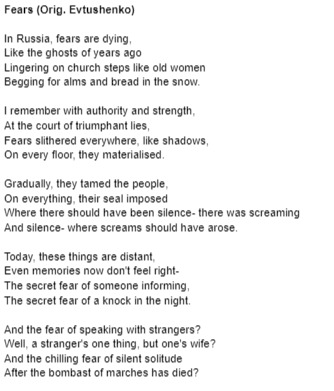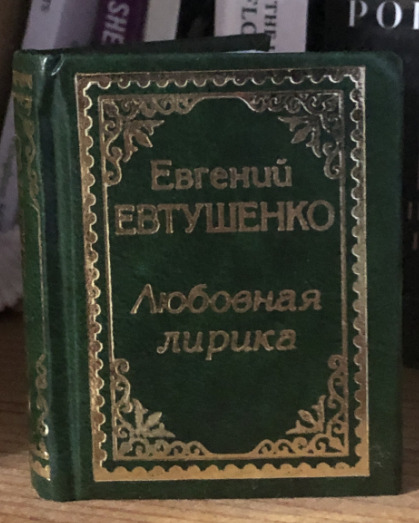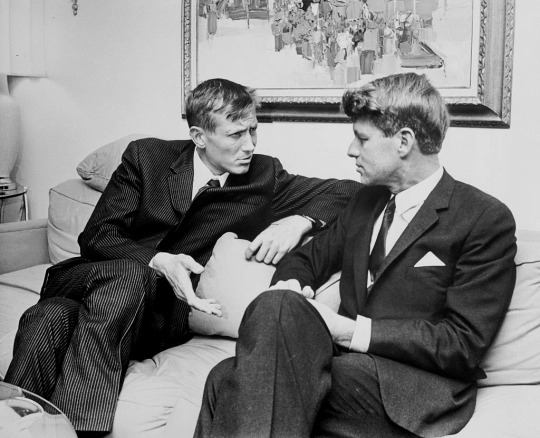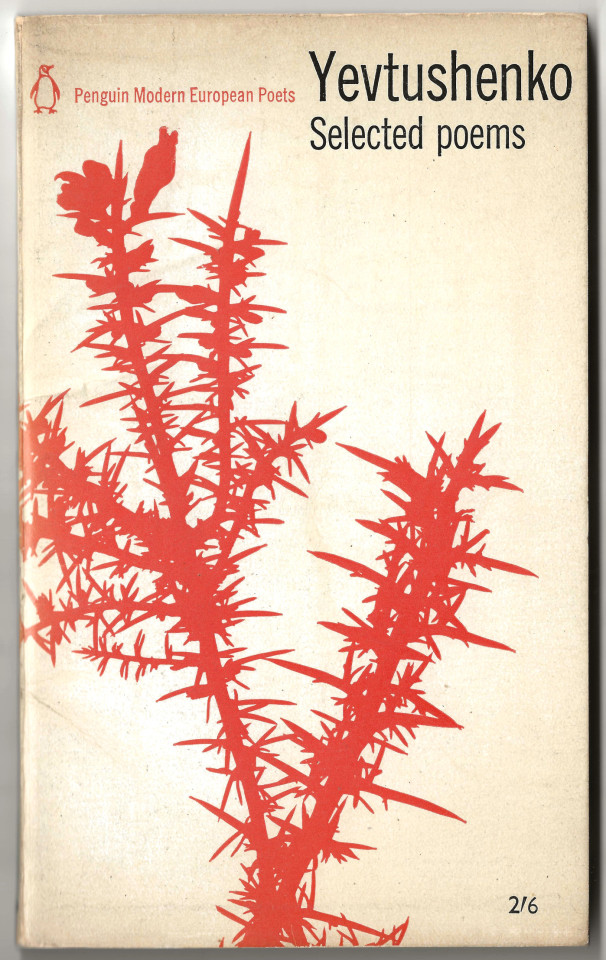#Yevgeny Yevtushenko
Text

Yevgeny Yevtushenko, translated by George Reavey, from a poem titled "Babii Yar,"
852 notes
·
View notes
Text
There Are No Boring People in This World
by Yevgeny Yevtushenko
There are no boring people in this world.
Each fate is like the history of a planet.
And no two planets are alike at all.
Each is distinct--you simply can’t compare it.
If someone lived without attracting notice
and made a friend of their obscurity--
then their uniqueness was precisely this.
Their very plainness made them interesting.
Each person has a world that’s all their own.
Each of those worlds must have its finest moment
and each must have its hour of bitter torment--
and yet, to us, both hours remain unknown.
When people die, they do not die alone.
They die along with their first kiss, first combat.
They take away their first day in the snow...
All gone, all gone--there’s just no way to stop it.
There may be much that’s fated to remain,
but something--something leaves us all the same.
The rules are cruel, the game nightmarish--
it isn’t people but whole worlds that perish.
2K notes
·
View notes
Text








the beast you made of me
The Truth and Grunewald, Juan Ramón Jiménez tr. W.S. Merwin | St. Michael, Luca Giordano | The Bear - Episode 1, Christopher Storer | Fallen Angel, Alexandre Cabanel | Fury, Yevgeny Yevtushenko | Dante et Virgile, William Bouguereau | The Terre Haute Planetarium Rejected My Proposal, Paige Lewis | Study of a Man, Thomas Couture
#juan ramón jiménez#w.s. merwin#luca giordano#the bear#the bear fx#the bear hulu#carmy berzatto#the fallen angel#alexandre cabanel#yevgeny yevtushenko#dante and virgil#william adolphe bouguereau#paige lewis#thomas couture#web weaving#webweaving#dark academia#light academia#classic academia#literature#poetry
3K notes
·
View notes
Text



Two Morning Poems, Yevgeny Yevtushenko (translated by Anselm Hollo)
#quotes#literature#poetry#classic literature#translated literature#poems#yevgeny yevtushenko#russian literature
237 notes
·
View notes
Text
well, @illumiost asked to hear my Russian, so here's me reciting a poem that's very important to me.
This is "Страхи" (Fears) by the Soviet poet Evgeny Evtushenko, written 1962. The poem was set to music for the fourth movement of Shostakovich's 13th Symphony.
The historical context to this poem is vital to understanding it. After Stalin's death in 1953, Khrushchev's government came with some easing of cultural restrictions, and the decline of the "Socialist Realism" art style, most prominent in the 30s-50s. This period of Soviet history is known as the "Thaw." While the Thaw resulted in a rise in avant-garde Soviet art, it was still heavily discouraged, albeit not to the extent that it was during Stalin's time in power; while the fact that this poem makes an appearance in Shostakovich's symphony is indicative of the changing cultural atmosphere, it also faced censorship and controversy (albeit not to the extent of another Evtushenko poem featured in Shostakovich 13, "Babi Yar").
The poem alludes to two major historical events that defined Soviet culture during the Stalin era- the Great Purges (1936-38) and WWII (in the Soviet Union, 1941-45). During the Purges, a culture of fear and distrust grew, and while the war resulted in devastating losses of life, wartime and postwar propaganda pushed an image of Soviet strength and military power. This cognitive dissonance between fear and trauma caused by one's own government, while projecting a cultural image of patriotic might and confidence, is reflected in the poem as well.
Overall, "Страхи" is a poem about the lasting presence of cultural trauma and its consequences for Soviet Russia (and, one could argue, modern Russia). The first and last stanzas contain the line, "Умирают в России страхи" ("in Russia, fears are dying"), but as the rest of the poem states, this is not the case. Fear is still as alive in 1962 as it was in 1936, and it manifests as mistrust and a wariness to speak out against oppression. The poem purposefully contradicts itself multiple times; fears are dying in Russia, but they still permeate Russian society. Russians were unafraid of warfare during WWII, but were terrified of speaking aloud to themselves at home.
Here is my original English translation of "Страхи." It's not a one-for-one literal translation, but I did my best to preserve both the meaning and the original rhyme scheme.


In 2022, before Russia invaded Ukraine, I was taking Russian language classes in college in order to further my music history research. I was invited by my Russian professor to participate in the Evgeny Evtushenko poetry competition, which required Russian learners (both students learning Russian as a foreign language and heritage speakers) to recite a Russian-language poem on a Zoom call. Evtushenko's widow and son were on the judges' panel. As I was familiar with some of his work and knew he collaborated with Shostakovich- a composer whom I had been enamored with researching- I signed up for the competition and chose this poem, as I was already familiar with it from the symphony. My professor was surprised I decided to choose such a long poem with that sort of historical weight to it, but agreed to help coach me with the pronunciation and enunciation.
Reciting this poem in front of her was difficult, even before the war began. My professor grew up in Russia, and I didn't want her to think I was taking the poem lightly by any means; I was dealing with serious subject matter from a culture I was not a part of, and while my historical research had helped me somewhat understand what the poem was about, I knew there was a cultural component to it that I would never be able to fully grasp. However, my professor encouraged me to learn the poem, and urged me not to shrink away from some of the more cutting stanzas.
I was probably halfway through memorizing it when the invasion happened, and that made me gain another layer of understanding. Going on Reddit and reading posts from Russians who had previously dismissed the idea of an invasion of Ukraine as "western propaganda," only to be completely shocked and disillusioned when the invasion actually began, hearing how scared my friends in eastern Europe were, reading news reports of protesters being arrested just for holding anti-war signs, and seeing the war be met with apathy or claims of being "apolitical" by civilians as it went on made it harder to learn and recite the poem, as I was beginning to see just how relevant it was.
One day, I read a news report that a memorial in Babyn Yar, Ukraine, had been damaged by bombing- the site of the 1941 anti-Semitic massacre where, in 1962, as stated in the Shostakovich 13 setting, there "was no monument." When I went to practice the poem that day in front of my professor, I broke down crying. 1936 became 1941 became 1962 became 2022, and that day, I felt as if I had caught a glimpse of the impossible length of history.
I can hardly remember being on the Zoom call and reciting the poem for the Evtushenkos. I couldn't believe I was actually speaking to them, and that they were listening to me recite the words of the famous poet- to them, a husband and father- who had collaborated with the Dmitri Shostakovich on one of the most monumental symphonies of the 20th century. I wish I could have looked at their faces on the screen, but I didn't; I just recited and then listened to the rest of the students read their poems. I didn't win the competition, and didn't even place, but a few weeks later, my Russian professor handed me this small book of Evtushenko poems, which she said the Evtushenko family wanted to give me. It's by far my most prized possession.

#poetry#russian#russian language#language learning#evgeny evtushenko#evtushenko#yevtushenko#yevgeny yevtushenko#shostakovich#dmitri shostakovich#ukraine#russo ukrainian war#history#current events#long post
52 notes
·
View notes
Text
La vida es un arcoiris que incluye el negro.
Yevgeny Yevtushenko.
#yevgeny yevtushenko#escritos#reflexión#poetas contemporáneos#poetas en español#escritor#citas de escritores#ruso#frases#libros#cuentos#citas en español#filosofía#filósofo#libros filosofía#spanish quotes#spanish#literatura#literature#literary#frases de la vida#vida moderna#vida y muerte#filosofía de vida#citas de la vida#vida adulta
29 notes
·
View notes
Text

Yevgeny Yevtushenko from “Babii Yar,” wr. c. 1952
60 notes
·
View notes
Text
"La vida es un arco iris que incluye el negro".
–Yevgeny Yevtushenko.

#yevgeny yevtushenko#frase#frases#frase en español#frases en español#quotes#escrito#escritor#literatura#poeta#poetas#poetas en español#libro#libros#vida#negro#color negro#escritores#imagen#imagen con texto#imágenes#imágenes con texto#arco iris#arcoiris
6 notes
·
View notes
Text
“Here all things scream silently.”
—Yevgeny Yevtushenko, tr. by George Reavey, “Babii Yar,”
#poets on tumblr#dark academia#aesthetic#spilled poetry#words#spilled ink#spilled thoughts#19th century#vintage#love poem#dark acadamia aesthetic#dark academia books#renaissance art#renaissance#poetry#dark academia lovers#vintage classics#dark acdemia#yevgeny yevtushenko
21 notes
·
View notes
Text
Colours // Yevgeny Yevtushenko
When your face
appeared over my crumpled life
at first I understood
only the poverty of what I have.
Then its particular light
on woods, on rivers, on the sea,
became my beginning in the coloured world
in which I had not yet had my beginning.
I am so frightened, I am so frightened,
of the unexpected sunrise finishing,
of revelations
and tears and the excitement finishing.
I don’t fight it, my love is this fear,
I nourish it who can nourish nothing,
love’s slipshod watchman.
Fear hems me in.
I am conscious that these minutes are short
and that the colours in my eyes will vanish
when your face sets.
2 notes
·
View notes
Note
You read a lot non-fiction what I call "colon books" ("Title: Longer Subtitle"). What are some of your favourite or latest fiction books that you've read?
Even if it’s not your ideal genre, there has to be a more pleasant way of talking about non-fiction titles than calling them “colon books”, right? That sounds like a pretty gross section of the library.
I must admit that I’ve never been a big reader of fiction. I read a lot of books, but fiction has always been a pretty small percentage of them. I don’t have anything against fiction books and, quite frankly, I wish I had more of an interest in them because I believe reading from a broader, more diverse group of genres opens up your mind to a wider array of viewpoints. But I just can’t lose myself in fiction as easily as I do in non-fiction — and I know that not only sounds ridiculous but kind of proves how important it probably is for me to actually read more fiction in order to expand my horizons and build a healthier imagination.
When I do read fiction, it usually is because I like the work of specific authors and don’t want to miss whatever they write. One odd thing is that while I very rarely (almost never, in fact) re-read non-fiction books, when it comes to fiction, I usually stick with the same small collection of favorite authors and often re-read their work.
And if I’m not reading non-fiction, there’s a pretty good chance that I’m reading poetry instead of a novel or some sort of traditional prose fiction. Like I said, it’s probably more of a failure of imagination than anything, but while I respect and appreciate great literature and creative fiction, I just prefer reading stuff that feels more realistic. I couldn’t even guess what the last science fiction book I read was. I have several thousand books in my personal library, but I’m willing to bet that I have less than a half-dozen sci-fi books. My taste in movies or TV shows is pretty similar; I rarely watch sci-fi or fantasy. Even as a kid I was never able to get into them.
So what type of fiction books do I read whenever I actually do pick up something other than non-fiction?
I’ve been pretty vocal over the years about my appreciation/admiration/awe for the work of Sam Shepard. Everything he wrote — from his plays to his prose to poetry to his short story collections — amazes me as a reader and makes me insanely jealous as a writer. I have every book he ever published and just about every play or collection of plays, and I re-read him more than anybody else.
I’m also a huge fan of John Steinbeck and Joan Didion. I think I have just about everything that Steinbeck ever published and I have phases when I fall into a Steinbeck rabbit hole and just tunnel through my Library of America collection of his work, which are treasures. I didn’t get into Joan Didion’s writing until later, so I’m still reading some of her stuff for the first time. I think the fact that I’m from Northern California like Steinbeck (from Salinas) and Didion (who was from Sacramento originally, just like me) helps me put myself in their work in a more intimate way than when I’m trying to read most other writers of fiction. I need that kind of connection to lock on to fiction in the way that I’m able to do with non-fiction. Plus, Steinbeck and Didion also wrote some great non-fiction, so I can get the best of both worlds. Two other authors that I’ve read and re-read many times are Cuba’s heroic founding father, freedom fighter, and martyred revolutionary José Martí and the ingenious, acerbic Ambrose Bierce whose satirical The Devil's Dictionary (BOOK | KINDLE) has miraculously maintained its edginess and razor-sharp humor despite being originally written over 125 years ago.
There’s really not a lot of contemporary fiction that I read. I’m sure I’d find some great stuff if I gave it the chance, but there’s only so many hours in the day that I have to read, so I do tend to give it over to non-fiction, as you might notice when I answer the questions about the books I’ve been recently reading! So, if I am reading fiction, it’s almost always older stuff that I’m finally getting around to reading. During the pandemic, I got lost in the work of Jorge Luis Borges, who I had not spent much time with previously, but I pored through his fiction and poetry. Two more books that I also frequently re-read or pull of the shelves to read pieces of are Baltasar Garcián’s The Art of Worldly Wisdom (BOOK | KINDLE), which was first published in 1647 but still feels fresh 375 years later, and Fernando Pessoa’s brilliant, posthumously published The Book of Disquiet (BOOK | AUDIO | KINDLE).
As for the poets you’ll find on my shelves, it’s probably who you’d expect: Pablo Neruda, Langston Hughes, Edna St. Vincent Millay, Hafiz, Matthew Arnold, William Blake, and Federico García Lorca. Like I mentioned earlier, Sam Shepard and José Martí are two of my favorites for their prose and poetry. I’d especially recommend Shepard’s 1973 book Hawk Moon: Short Stories, Poems, Monologues and Motel Chronicles (BOOK | KINDLE), published in 1982 by the legendary Lawrence Ferlinghetti at San Francisco’s iconic City Lights Books. José Martí’s greatest work is Versos Sencillos (BOOK | KINDLE), originally published in Spanish 1891 but I recommend the excellent dual-language edition translated by Anne Fountain and published by McFarland & Company in 2005. One other poetry book that is always pretty close to my desk is Yevgeny Yevtushenko’s wonderful The Collected Poems, 1952-1990.
And last but not least — but certainly the least surprising — is William Shakespeare. I love Shakespeare. I don’t think that this is a controversial opinion, but Shakespeare is fucking amazing. You guys can share that secret with other people if you feel the need to do so. If someone put a gun to my head and told me I had to pick only three books to read for the rest of my life, the first thing I would do would be to choose Shakespeare’s Complete Works. Actually…the first thing I would do would be to ask why that person felt the need to put a gun to my head just to choose three books to read. That seems unnecessarily aggressive and wildly inappropriate for the task at hand. But after chastising them for their needlessly dangerous tactics, I would choose Shakespeare’s Complete Works — specifically the latest Norton edition with Stephen Greenblatt as general editor (BOOK | DIGITAL).
#Books#Book Suggestions#Book Recommendations#Fiction#Poetry#Prose#Literature#Non-Fiction#Not Non-Fiction#Suggested Books#Reading List#William Shakespeare#Yevgeny Yevtushenko#José Martí#Sam Shepard#Hawk Moon#Motel Chronicles#Versos Sencillos#Fernando Pessoa#The Book of Disquiet#Baltasar Gracián#The Art of Worldly Wisdom#Pablo Neruda#Langston Hughes#Edna St. Vincent Millay#William Blake#Hafiz#Matthew Arnold#Federico Garcia Lorca#Jorge Luis Borges
10 notes
·
View notes
Text
...though he had slaughtered so many
he had understood nothing at all.
2 notes
·
View notes
Text
Breaking Up
by Yevgeny Yevtushenko
I fell out of love: that’s our story’s dull ending,
as flat as life is, as dull as the grave.
Excuse me–I’ll break off the string of this love song
and smash the guitar. We have nothing to save.
The puppy is puzzled. Our furry small monster
can’t decide why we complicate simple things so–
he whines at your door and I let him enter,
when he scratches at my door, you always go.
Dog, sentimental dog, you’ll surely go crazy,
running from one to the other like this–
too young to conceive of an ancient idea:
it’s ended, done with, over, kaput. Finis.
Get sentimental and we end up by playing
the old melodrama, “Salvation of Love.”
“Forgiveness,” we whisper, and hope for an echo;
but nothing returns from the silence above.
Better save love at the very beginning,
avoiding all passionate “nevers,” “forevers;”
we ought to have heard what the train wheels were shouting,
“Do not make promises!” Promises are levers.
We should have made note of the broken branches,
we should have looked up at the smokey sky,
warning the witless pretensions of lovers–
the greater the hope is, the greater the lie.
True kindness in love means staying quite sober,
weighing each link of the chain you must bear.
Don’t promise her heaven–suggest half an acre;
not “unto death,” but at least to next year.
And don’t keep declaring, “I love you, I love you.”
That little phrase leads a durable life–
when remembered again in some loveless hereafter,
it can sting like a hornet or stab like a knife.
So–our little dog in all his confusion
turns and returns from door to door.
I won’t say “forgive me” because I have left you;
I ask pardon for one thing: I loved you before.
233 notes
·
View notes
Text
𝘛𝘩𝘦 𝘚𝘵𝘢𝘵𝘶𝘦 𝘰𝘧 𝘓𝘪𝘣𝘦𝘳𝘵𝘺’𝘴 𝘤𝘰𝘭𝘰𝘳
𝘎𝘳𝘰𝘸𝘴 𝘦𝘷𝘦𝘳 𝘮𝘰𝘳𝘦 𝘥𝘦𝘢𝘵𝘩𝘭𝘺 𝘱𝘢𝘭𝘦
𝘈𝘴, 𝘭𝘰𝘷𝘪𝘯𝘨 𝘧𝘳𝘦𝘦𝘥𝘰𝘮 𝘸𝘪𝘵𝘩 𝘣𝘶𝘭𝘭𝘦𝘵𝘴
𝘈𝘯𝘥 𝘵𝘢𝘬𝘪𝘯𝘨 𝘭𝘪𝘣𝘦𝘳𝘵𝘺 𝘸𝘪𝘵𝘩 𝘣𝘶𝘭𝘭𝘦𝘵𝘴,
𝘠𝘰𝘶 𝘴𝘩𝘰𝘰𝘵 𝘢𝘵 𝘺𝘰𝘶𝘳𝘴𝘦𝘭𝘧, 𝘈𝘮𝘦𝘳𝘪𝘤𝘢.
𝘠𝘰𝘶 𝘤𝘢𝘯 𝘬𝘪𝘭𝘭 𝘺𝘰𝘶𝘳𝘴𝘦𝘭𝘧 𝘭𝘪𝘬𝘦 𝘵𝘩𝘢𝘵
𝘐𝘵 𝘪𝘴 𝘥𝘢𝘯𝘨𝘦𝘳𝘰𝘶𝘴 𝘵𝘰 𝘨𝘰 𝘰𝘶𝘵
𝘐𝘯𝘵𝘰 𝘵𝘩𝘪𝘴 𝘥𝘪𝘢𝘣𝘰𝘭𝘪𝘤𝘢𝘭 𝘸𝘰𝘳𝘭𝘥, 𝘦𝘷𝘦𝘯 𝘮𝘰𝘳𝘦 𝘥𝘢𝘯𝘨𝘦𝘳𝘰𝘶𝘴
𝘛𝘰 𝘩𝘪𝘥𝘦 𝘪𝘯 𝘵𝘩𝘦 𝘣𝘶𝘴𝘩𝘦𝘴, 𝘢𝘯𝘥 𝘵𝘩𝘦 𝘸𝘰𝘳𝘭𝘥 𝘴𝘮𝘦𝘭𝘭𝘴 𝘭𝘪𝘬𝘦 𝘋𝘢𝘭𝘭𝘢𝘴
𝘖𝘯 𝘦𝘢𝘳𝘵𝘩, 𝘢𝘯𝘥 𝘪𝘵 𝘪𝘴 𝘴𝘤𝘢𝘳𝘺 𝘵𝘰 𝘭𝘪𝘷𝘦, 𝘢𝘯𝘥 𝘵𝘩𝘪𝘴 𝘧𝘦𝘢𝘳 𝘪𝘴 𝘴𝘩𝘢𝘮𝘦𝘧𝘶𝘭.
—𝘧𝘳𝘰𝘮 “𝘍𝘳𝘦𝘦𝘥𝘰𝘮 𝘵𝘰 𝘒𝘪𝘭𝘭” 𝘣𝘺 𝘠𝘦𝘷𝘨𝘦𝘯𝘺 𝘠𝘦𝘷𝘵𝘶𝘴𝘩𝘦𝘯𝘬𝘰


12 notes
·
View notes
Text

— Yevgeny Yevtushenko, People
#yevgeny yevtushenko#quotes#literature#poems#poetry#russian classics#russian literature#translated literature#people
541 notes
·
View notes
Text

Selected Poems by Yevgeny Yevtushenko with a cover designed by Peter Barrett.
0 notes